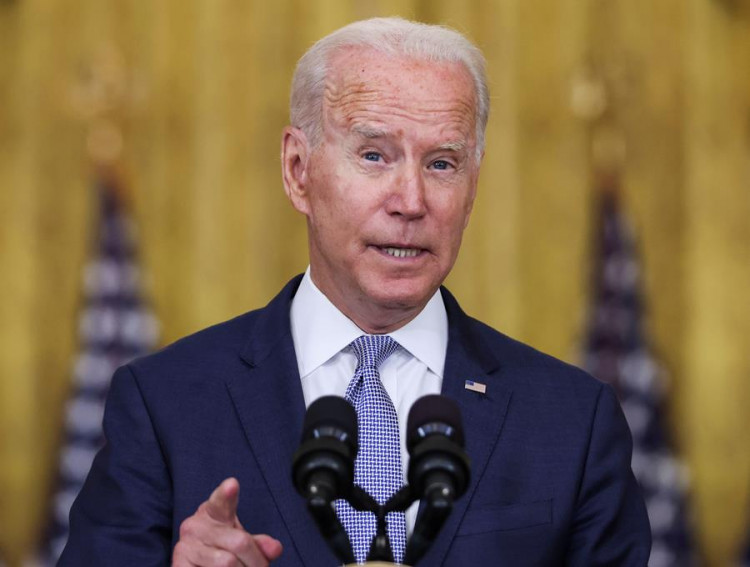On the eve of the U.S. President's visit to Israel, the Al-Ahli Arab Hospital, also known as the Baptist Hospital, located in the northern Gaza Strip city of Gaza, was targeted in an airstrike.
Established in 1882, this facility, operated by the Anglican Diocese of Jerusalem, stands as one of Gaza City's oldest hospitals. According to the diocese's official site, the hospital has 80 beds, catering to approximately 3,500 outpatient visits and 400 in-patient stays every month. The hospital offers free breast cancer screening for Gaza women over 40 and its mobile clinic provides free medical services and food twice a week for neighboring villages.
Situated at the heart of Gaza City, the Baptist Hospital is described on its official website as a "peace haven in the middle of one of the world's most turbulent regions". Following Israel's call for 1.1 million northern Gaza residents to move southward within 24 hours last Friday, many sought refuge in this sanctuary.
During the assault, Dr. Ghassan Abu Sittah of Doctors Without Borders was working at the Baptist Hospital. According to a statement from the organization, Dr. Sittah was performing a surgery when a massive explosion occurred, causing the operating room's ceiling to collapse, which he described as a massacre.
Doctors Without Borders condemned the Tuesday evening attack, decrying it as an unacceptable act of "mass slaughter".
Preliminary estimates from Gaza's Health Department suggest that over 300 people died in the assault, while Hamas, which governs the Gaza Strip, places the death toll at over 500.
Ashraf Al-Qudra, the spokesman for the Gaza Health Ministry, remarked on the indescribable aftermath of the explosion, noting that many of the casualties were women and children. Due to the hospital's damages, surgeries were being conducted on floors and corridors, with some procedures lacking anesthesia.
Several international entities, including the United Nations, World Health Organization, Arab League, and International Red Cross, voiced their condemnation of the attack on the Baptist Hospital in Gaza. The World Health Organization also called on Israel to revoke its relocation demand, warning that under current security and medical conditions, such a massive civilian relocation was implausible.
The party responsible for the attack on the Baptist Hospital has become a matter of contention, with Israel and the Palestinian Islamic Jihad (PIJ) blaming each other. Founded in 1981, the PIJ, an armed group in the Gaza Strip, focuses primarily on military confrontation with Israel, unlike Hamas, which participates in parliamentary elections.
Israel denied launching any airstrikes or ground attacks in the vicinity of the Baptist Hospital. They reported radar detections of multiple rocket launches near the hospital and intercepted communications indicating that PIJ was responsible for the rocket fire. The PIJ firmly rejected these claims, accusing Israel of fabricating lies to deflect blame from their "brutal massacre".
However, amidst the public discontent over Israel's bombings in Gaza, Israel is widely believed to be the perpetrator.
Al Jazeera reported that some observers are skeptical of Israel's account, citing past instances of Israel wrongly attributing actions to Palestinian militants.
Amid such sentiments, protest rallies erupted in countries including Turkey, Egypt, Iran, Jordan, Lebanon, Libya, Yemen, Iraq, Tunisia, and the West Bank. Demonstrators gathered outside Israeli, U.S., British, and French embassies, condemning Israel's actions against Palestinians.
In the West Bank, Palestinian protestors directed their anger at Palestinian President Abbas, blaming his compromises with Israel for the current Gaza tragedy. Some called for his resignation, leading to clashes with Palestinian security forces using tear gas and stun grenades.
Abbas, who was in Jordan, canceled his trip and returned to the West Bank. He had originally planned to meet with Biden, King Abdullah II of Jordan, and Egyptian President Sisi in Jordan to discuss the Gaza conflict. Both Abbas and the Palestinian Foreign Ministry condemned the attack on the Baptist Hospital, accusing Israel of committing war crimes and crimes against humanity.
As of now, the U.S., Israel's primary ally, has not pushed for an end to the hostilities.
In a recent interview, Biden expressed support for Israel's efforts against Hamas but also cautioned Israel against reoccupying Gaza. While the U.S. has no plans to deploy troops in the Gaza conflict, Biden affirmed America's commitment to assisting Israel.
Upon landing in Tel Aviv, Biden stressed his visit's intent was to show Israelis and the world where the U.S. stands. He condemned the hospital attack, but based on the information he had, suggested another party, not Israel, might be responsible.
This ongoing Gaza conflict, especially with the recent attack on the Baptist Hospital, challenges Biden's attempts to maintain a balanced stance between Israel and Arab nations.
David Schenker, an expert from the Washington Institute for Near East Policy, pointed out that if Israel launches a ground offensive in Gaza after Biden's visit concludes, it could further strain U.S. relations with several nations.
As of now, the current conflict has resulted in the deaths of over 3,300 Palestinians in the Gaza Strip and 13,000 injured; on the Israeli side, 1,400 have died and 4,475 have been injured. The United Nations warns that all hospitals in the Gaza Strip are facing shortages of medicines and essential medical supplies, and the blood bank supply can only last for a week.





